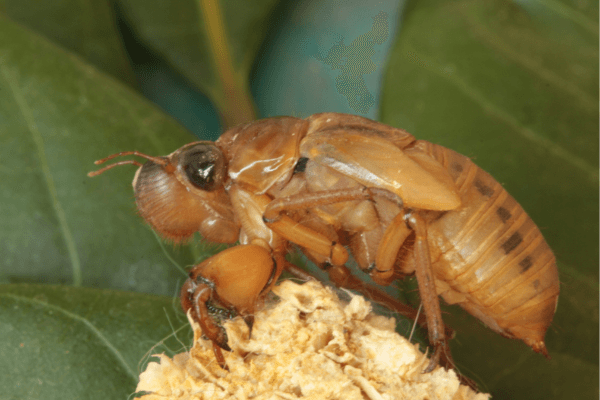They're coming; what you need to know about cicadas in South Carolina!
Hear that?! Yes, it's a sound we know all too well. That yearly drone of the cicada buzz. As cicadas begin to emerge, it may seem as if you can't even leave your front door for fear of being overrun by them. Some years, these pests are worse than others, but there is a reason for that. This post will share everything you need to know about cicadas in South Carolina and what a typical life cycle looks like.
What kinds of cicadas are in South Carolina?
South Carolina is home to several cicada species, including the periodical cicadas and annual cicadas. Periodical cicadas, also known as "17-year" or "13-year" cicadas, have incredibly long life cycles and emerge in large numbers. Due to the life cycle of these cicadas, not all areas of South Carolina will experience periodical cicada emergences in any given year. On the other hand, annual cicadas, as the name suggests, emerge every year. They have shorter life cycles, typically taking 2 to 5 years to complete their life cycle. These cicadas are more widespread throughout South Carolina and can be observed in various regions across the state.
When is cicada season in South Carolina?
In South Carolina, cicadas typically emerge in the warmer months, specifically during the late spring and summer. Once the cicada makes its way above ground, they usually linger around 4 weeks before dying off, so expect them to be here for a little longer than a month. Just note, the exact timing of cicada season can vary depending on the species and location within the state.
The Life Cycle of a Cicada

Known for their distinctive buzzing or chirping sounds that they produce during the summer months, the life cycle of a cicada is quite unique and involves several stages:
Eggs
Female cicadas lay their eggs in the bark of trees, typically in slits that they create using their ovipositor. Each female can lay hundreds of eggs. After laying the eggs, the female cicada dies.
Nymphs
The eggs hatch, and the young cicadas, called nymphs, emerge. Nymphs are small, wingless, and resemble miniature versions of adult cicadas. They immediately drop to the ground and burrow into the soil.
Underground Phase
Once underground, the nymphs locate a suitable root of a tree or plant and use their specialized mouthparts to tap into the plant's sap. Cicadas spend most of their life underground as nymphs, feeding on the sap and growing larger.
Molting
As the nymphs grow, they molt several times, shedding their exoskeletons. Each molt is called an instar. The number of instars varies among different cicada species but typically ranges from four to five.
Emergence
After spending several years underground (ranging from two to seventeen years, depending on the species), the mature nymphs emerge from the ground. They climb up trees, plants, or other vertical surfaces.
Adult Stage
Once above ground, the nymphs undergo a final molt, transforming into adult cicadas. The adults have wings, a hard exoskeleton, and large compound eyes. They are known for their vibrant colors and distinct patterns.
Mating
Adult cicadas have a short lifespan, usually ranging from a few weeks to a couple of months. During this time, the male cicadas produce loud buzzing or chirping sounds to attract females for mating. Mating occurs, and the female cicadas lay eggs to continue the life cycle.
So now you know, while it may seem to last forever in our minds, the amount of time a cicada creates a buzz in our world is just a very small portion of its actual lifespan. Either way, cicada season is on its way to South Carolina. Are you ready?
-----------------------------------------------------------------------------
Old South Exterminators; Trusted South Carolina Pest Control
Old South Exterminators was founded in 1968 in Ridgeland, South Carolina as one of the original pest control companies in the Lowcountry. We are a family-owned business that services our community throughout Beaufort, Bluffton, Ridgeland, Savannah, and the greater Lowcountry of South Carolina area. During our over 50 years of service, we have learned what it takes to deliver the highest quality solutions possible, so our customers can always expect advanced customized treatments, genuine care, and knowledgeable technicians. Our entire team has the experience and ability to prevent and treat any pest problem that may arise, both for homes and commercial properties.

